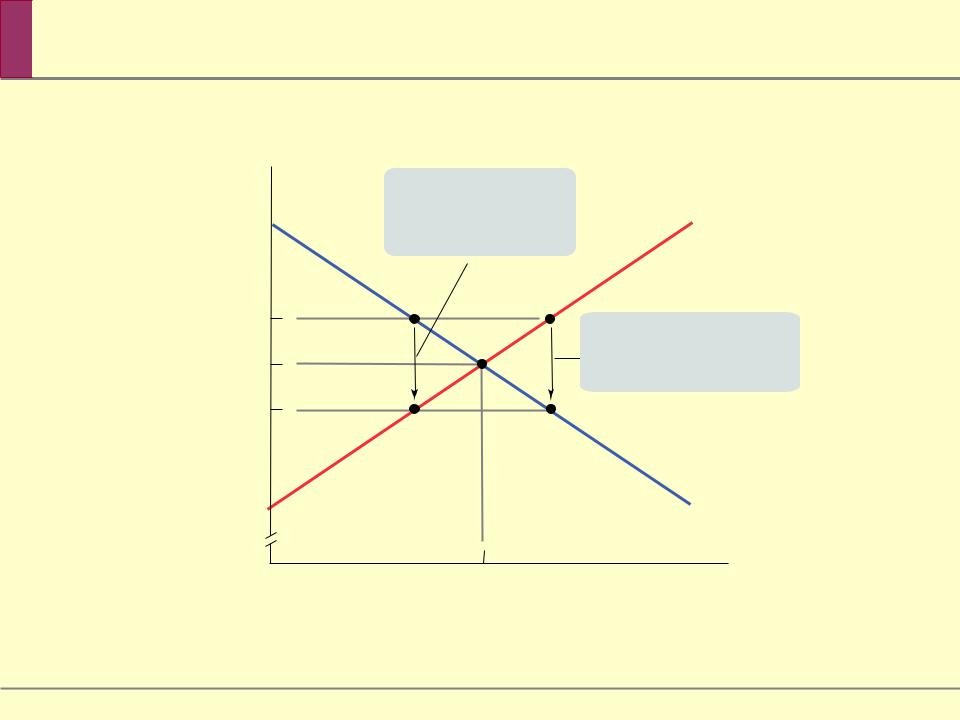
Lectures_micro / Microeconomics_presentation_Chapter_4
.pdf

 The Efficiency of Markets: A Preliminary View
The Efficiency of Markets: A Preliminary View
Claim: The maximum possible total surplus is achieved at market equilibrium.
The market equilibrium allocates the consumption of the good among potential consumers and sales of the good among potential sellers in a way that achieves the highest possible gain to society.
By comparing the total surplus generated by the consumption and production choices in the market equilibrium to the surplus generated by a different set of production and consumption choices, we can show that any change from the market equilibrium reduces total surplus.

Three ways in which you might try to increase the total surplus
1. Reallocate consumption among consumers
2. Reallocate sales among sellers
3. Change the quantity traded

Reallocating |
Consumer |
Surplus |
|
Price of book
in consumer
taken |
book |
Ana |
|
|
to Bob |
D
0 |
1,000 |
Quantity of books |


 Reallocating Sales
Reallocating Sales
Price of book
30
Loss in consumer surplus if Yvonne is made to sell the book instead of
Xavier
0 |
1,000 |
Quantity of books |
|
|


 Changing the
Changing the
Price of book
$35
30
25
Loss in total surplus if the transaction between Ana and
Xavier is prevented
Loss in total surplus if the transaction between Yvone and Bob is forced
0 |
1,000 |
|
Quantity of books |


 Market Equilibrium Maximizes Total Surplus
Market Equilibrium Maximizes Total Surplus
1.It allocates consumption of the good to the potential buyers who value it the most, as indicated by the fact that they have the highest willingness to pay.
2.It allocates sales to the potential sellers who most value the right to sell the good, as indicated by the fact that they have the lowest cost.
3.It ensures that every consumer who makes a purchase values the good more than every seller who makes a sale, so that all transactions are mutually beneficial.
4.It ensures that every potential buyer who doesn’t make a purchase values the good less than every potential seller who doesn’t make a sale, so that no mutually beneficial transactions are missed.

Why Markets Typically Work So Well
Economists have written volumes about why markets are an effective way to organize an economy.
In the end, well-functioning markets owe their effectiveness to two powerful features: property rights and the role of prices as economic signals.

Why Markets Typically Work So Well
Property rights are the rights of owners of valuable items, whether resources or goods, to dispose of those items as they choose.
An economic signal is any piece of information that helps people make better economic decisions.

A Caveat
It’s important to realize that although the market equilibrium maximizes the total surplus, this does not mean that it is the best outcome for every individual consumer and producer.
For instance, a price floor that kept the price up would benefit some sellers.
But in the market equilibrium there is no way to make some people better off without making others worse off - and that’s the definition of efficiency.

A Few Words of Caution
